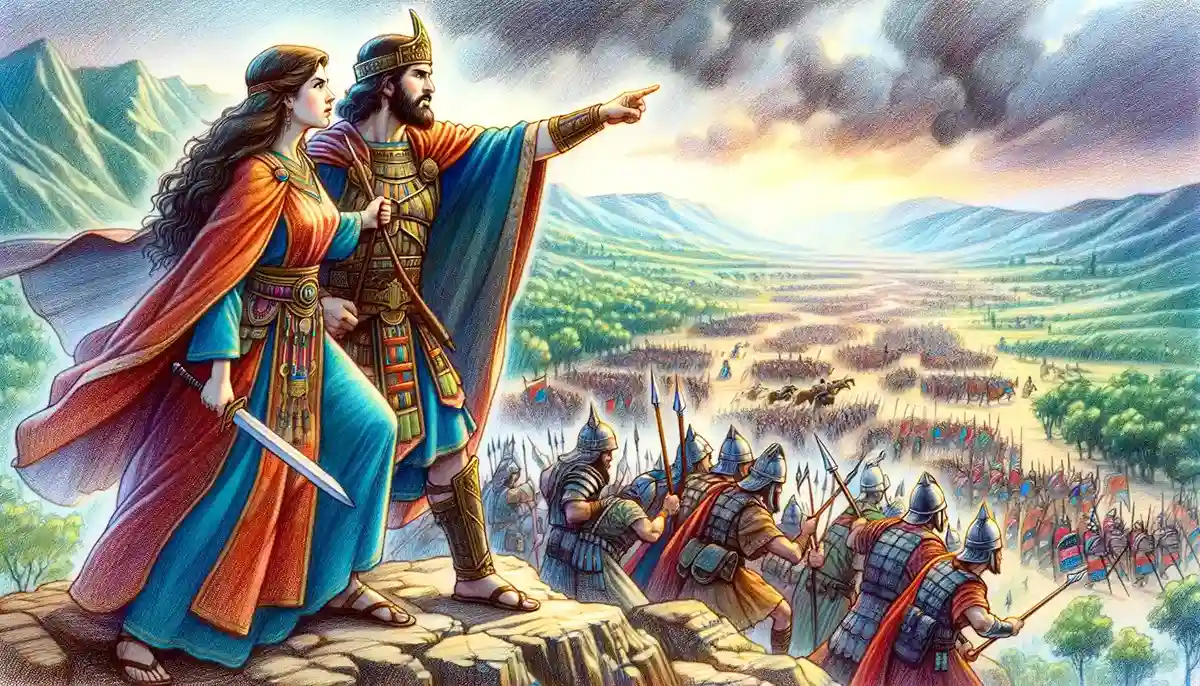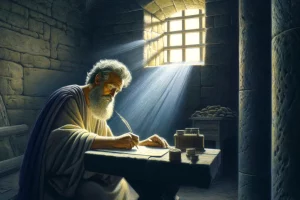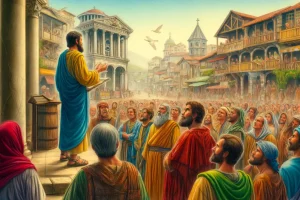
The Book of Judges
The Book of Judges is a significant historical and theological text within the Hebrew Bible and Old Testament. Here are some quick key facts about the Book of Judges:
- Title and Position: The title “Judges” refers to the leaders and warriors who governed and rescued Israel during the period between Joshua’s leadership and the establishment of the monarchy. It is the seventh book in the Old Testament.
- Authorship and Date: The authorship of Judges is traditionally ascribed to the prophet Samuel, but its exact author remains unknown. The book was likely compiled during the early monarchy, around the 11th to 10th centuries BC.
- Structure and Content: The book can be broadly divided into three sections:
- Prelude (Chapters 1-3): Describes the initial conquests and failures of Israel, setting the stage for the cyclical pattern of sin and deliverance.
- Main Body (Chapters 3-16): Details the exploits of twelve judges, including well-known figures such as Deborah, Gideon, Jephthah, and Samson. This section illustrates the repeated cycle of Israel sinning, suffering under oppression, crying out to God, and being delivered by a judge.
- Epilogue (Chapters 17-21): Contains narratives about the moral and social chaos in Israel during this period, emphasizing the phrase “In those days there was no king in Israel; everyone did what was right in his own eyes.”
- Main Themes:
- Cycle of Sin and Redemption: Illustrates a recurring cycle where Israel sins, faces oppression, repents, and is delivered by a judge.
- Leadership and Authority: Explores different forms of leadership and the consequences of having no central authority.
- Faithfulness and Apostasy: Highlights the consequences of Israel’s unfaithfulness and idolatry contrasted with God’s mercy and deliverance.
- Theological Significance:
- Judges demonstrates the sovereignty of God in raising up leaders to deliver His people, despite their repeated failures.
- The book serves as a critique of moral relativism, showing the degradation that follows from abandoning God’s law.
- Modern Relevance: Judges challenges readers to consider the effects of moral compromise and the importance of strong, godly leadership.
The Book of Judges is a complex and fascinating text within the Hebrew Bible that narrates the history of Israel between the conquest of Canaan and the establishment of the monarchy. This period, characterized by a cycle of sin, oppression, repentance, and deliverance, reflects deep theological and moral themes. Here’s a detailed analysis of its structure, content, major themes, and theological implications:
Structure and Content
1. Introduction (Chapters 1-2):
- These chapters set the stage by recounting the incomplete conquest of Canaan and the angel of the Lord’s rebuke to Israel for failing to drive out the Canaanites, setting up the cyclical pattern of disobedience and divine chastisement.
2. Main Narrative (Chapters 3-16):
- Cycles of Judges: The book details the exploits of twelve judges, including notable figures such as Othniel, Ehud, Deborah, Gideon, Jephthah, and Samson. Each judge’s story follows a pattern: Israel sins, is oppressed by neighboring peoples, cries out to God, and is delivered by a judge.
- Major Judges:
- Deborah, the prophetess, leads Israel alongside Barak, culminating in a victory celebrated in the Song of Deborah.
- Gideon initially defeats the Midianites with a small army, demonstrating God’s power, but his later actions lead to negative repercussions for Israel.
- Jephthah is known for his tragic vow which results in the sacrifice of his daughter.
- Samson, the last judge, is famous for his incredible strength and flawed character, ultimately leading to his downfall and death but not before delivering Israel from the Philistines.
3. Conclusion and Appendices (Chapters 17-21):
- Micah’s Idolatry and the Danite Migration (Chapters 17-18): Illustrates the spread of idolatry within Israel.
- The Levite’s Concubine and Civil War in Benjamin (Chapters 19-21): A disturbing account of moral chaos and intertribal violence, highlighting the need for righteous leadership in Israel.
Major Themes
1. Cycle of Sin and Deliverance:
- Judges vividly portrays the cyclical nature of Israel’s history during this period, characterized by repeated patterns of apostasy, suffering, repentance, and deliverance, which serves as a stark reminder of the consequences of turning away from God.
2. Leadership and Moral Authority:
- The diverse forms of leadership depicted, from military leaders to prophetesses, underscore the effects of leadership on the spiritual and social fabric of Israel. The repeated phrase, “In those days there was no king in Israel; everyone did what was right in his own eyes,” highlights the anarchy that results from a lack of centralized, godly governance.
3. Divine Sovereignty and Human Agency:
- Despite human failings, the narrative emphasizes God’s control over history, sovereignly raising up judges to deliver Israel whenever they repent and cry out for help. This theme underscores the tension between divine sovereignty and human responsibility.
Theological Significance
Judges not only provides historical insights into an important era in Israelite history but also offers profound lessons on the dynamics of sin and grace, the need for faithful leadership, and the consequences of moral and spiritual relapse. It reflects on human frailty and the relentless mercy of God who, despite His people’s repeated unfaithfulness, continues to offer redemption and deliverance.
Conclusion
The Book of Judges, with its stark narratives and deep theological insights, serves as a mirror to the human condition, revealing the dangers of forgetting God and the hope that lies in repentance and divine deliverance. It challenges readers to reflect on their own spiritual lives and the importance of maintaining a faithful and obedient relationship with God.
Tag:anarchy, apostasy, Book of Judges, covenant faithfulness, cycle of sin, Deborah, divine deliverance, divine sovereignty, Gideon, human responsibility, idolatry, incomplete conquest, Israelite History, Jephthah, Judges, Leadership, Levites, military leaders, moral chaos, Old Testament, prophetess, Samson, tribal conflict



